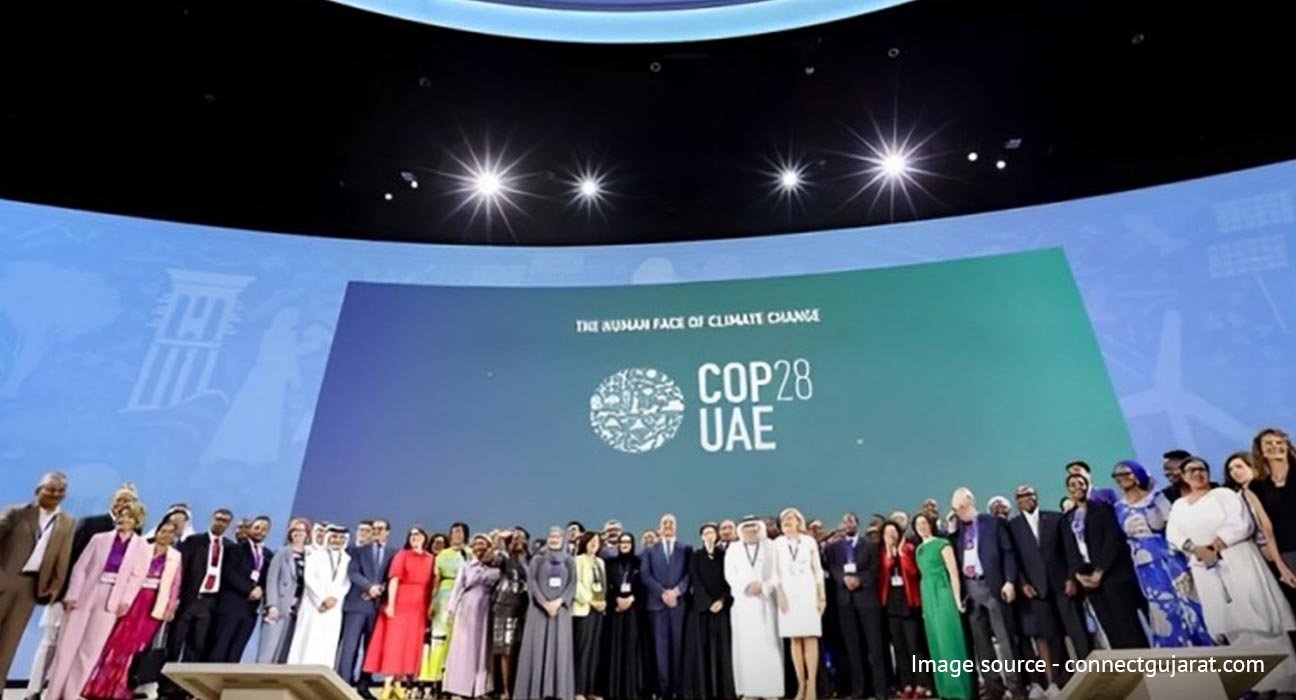To gain “benefits for health through deep, rapid, and sustained reductions, lower air pollution, active mobility, and switches to sustainable healthy diets,” the declaration urges for climate action. India declined to sign the COP28 Declaration on climate change and health on Sunday, citing concerns that reducing the use of greenhouse gases for cooling in the healthcare industry—one of the document’s recommendations—might not be feasible given the nation’s current state of healthcare systems.. The COP28 presidency, the World Health Organization, and the UAE Ministry of Health and Prevention convened the Sunday ministerial.
Relation between climate change and mental health
Despite making up a very tiny share of the world’s greenhouse gas emissions, the population of low- and middle-income nations is expected to be disproportionately affected by the negative health effects of climate change.
Global health inequities will be made worse by this injustice (McMichael et al. 2003; Patterson and Olson 2006; Patterson et al. 2007; Wiley and Gostin 2009). According to Katz et al. (2005) and Wiley and Gostin (2009), high-risk communities include those that are already facing resource scarcity, environmental degradation, high incidence of infectious disease, inadequate infrastructure, and overcrowding.
Climate change will significantly alter the connections between humans and pathogens, especially in tropical places (Sattenspiel 2000). The ecology of several vector-borne illnesses, including filariasis, Japanese encephalitis, dengue, malaria, kala-azar, and dengue fever, would change as a result of shifting temperatures and precipitation patterns associated with climate change (Bhattacharya et al. 2006; Dhiman et al. 2008).
The elderly, kids, those living in cities, and the underprivileged are among the vulnerable groups (Ebi and Paulson 2010; O’Neill and Ebi 2009).
Current action by the government to tackle the problem
- Now, the director general of health services oversees an integrated disease surveillance system; they should include all future research on the relationship between health and climate change in this system.
- One such organization that connects study and action is the Energy and Resources Institute (TERI) in Delhi, India. It raises awareness about climate change within India and shares with the rest of the world the perspective of a “developing country.”
- At TERI, we do everything from local think tank operations to international alliance formation for cooperative research. Additionally, the National Institute of Malaria Research is working cooperatively with Mercedes Pascual at the University of Michigan to evaluate the national implications of climate change on dengue and malaria and to create adaptation plans.
- Furthermore, this same partnership is creating a framework for malaria control amid changing climatic scenarios and an evidence-based study of the biophysical determinants of malaria across the northeastern states of India.
- Several other non-governmental groups, such as the Local Governments for Sustainability, which has a regional headquarters in New Delhi, are also addressing climate change in India.
Futuristic View
While implementing adaptation plans, India must make significant investments in cutting-edge information infrastructure upgrades that foster multidisciplinary cooperation. This will require unprecedented levels of cooperation across various Indian and international entities. Further development of geographic information systems and spatial analysis is necessary, as these are valuable tools for vulnerability assessments, environmental exposure assessments, research prioritization, and public and decision-maker dissemination of findings (Jerrett et al. 2010).
The proclamation expressed serious concern about the detrimental effects of climate change on health on the occasion of the inaugural health day as the 28th UN Climate Change Conference (COP28) on Sunday. As of right now, 124 nations have signed the declaration; the US and India, two of the biggest producers of greenhouse gases, are not on the official list of signatories.
The declaration emphasizes the necessity of quick and significant reductions in greenhouse gas emissions to address the crucial connection between climate change and global health. But a problem arose when the draft committed to lowering greenhouse gas emissions for cooling applications in hospital infrastructure—a requirement that India considers challenging to meet, according to insiders.













Leave feedback about this